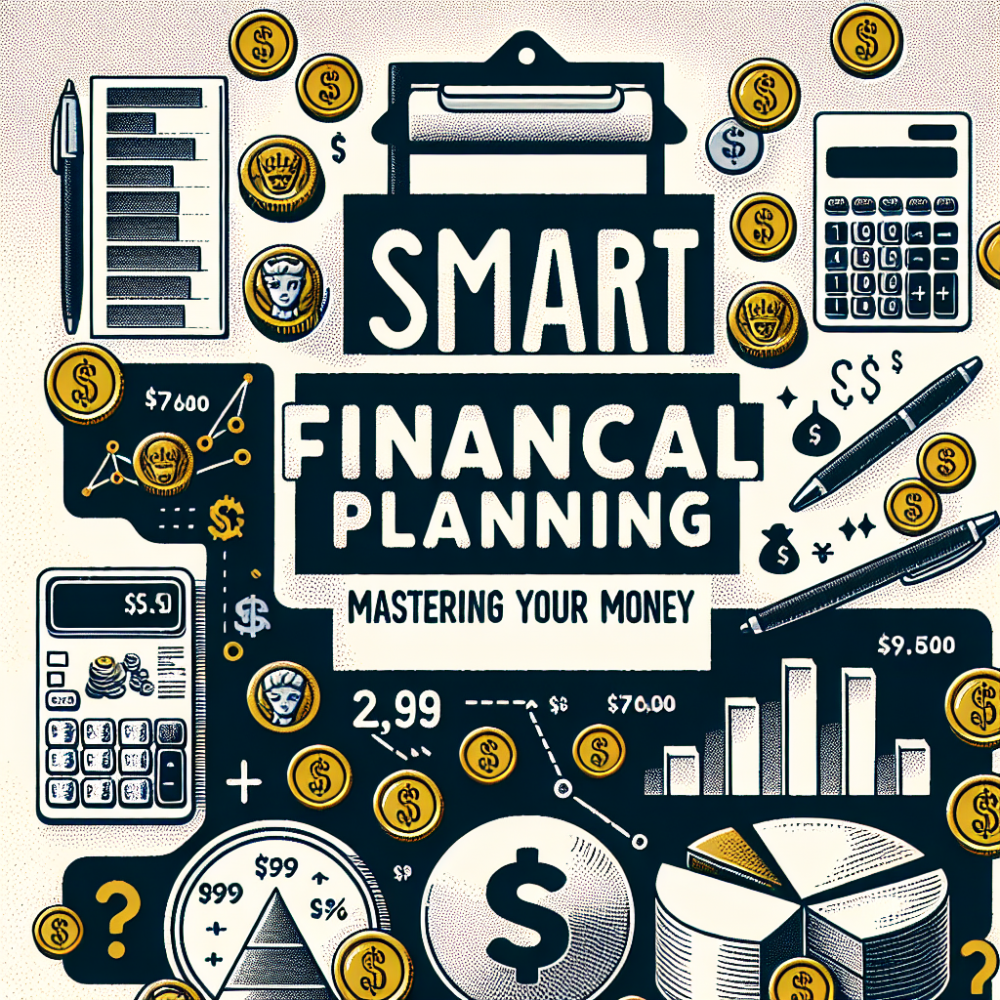Smart Financial Planning: Mastering Your Money

Posted on: Monday, March 4th, 2024
Budgeting is an essential skill that ensures financial stability and growth. It involves tracking income and expenses, setting goals, and making informed decisions to maximize savings and minimize debt. In today's rapidly changing economic landscape, staying informed and adaptable with your budget can significantly impact your financial health. This guide offers a distilled list of top strategies to help you navigate budgeting efficiently, ensuring you can meet your financial goals without unnecessary stress.
1. Track Your Spending: Begin by meticulously recording every purchase and bill payment. Apps like Mint or YNAB (You Need a Budget) can automate this process, providing valuable insights into where your money goes each month. Adjusting your spending habits starts with awareness.
2. Set Realistic Goals: Whether it's saving for a vacation, paying off debt, or building an emergency fund, clear goals motivate sensible spending. Break them down into achievable steps to avoid feeling overwhelmed and to track progress easily.
3. Create a Zero-Based Budget: Every dollar earns a purpose in this strategy. Allocate your income to expenses, savings, and debt repayment, so you end up with zero at the end of the month. It ensures mindful spending and prioritizes financial goals.
4. Prioritize an Emergency Fund: Aim to save at least three to six months' worth of living expenses. This fund acts as a financial buffer against unexpected events, reducing the need to rely on credit cards or loans during emergencies.
5. Cut Unnecessary Expenses: Review your regular expenses and identify areas where you can save. Subscriptions you rarely use, dining out frequently, or high-cost utilities can often be reduced or eliminated.
6. Use the 50/30/20 Rule: Allocate 50% of your income to necessities, 30% to wants, and 20% to savings and debt repayment. It's a simple framework that ensures a balanced approach to spending and saving.
7. Pay Yourself First: Treat your savings or investment contributions as non-negotiable monthly expenses. This habit ensures that saving for the future becomes a priority, not an afterthought.
8. Monitor and Adjust Regularly: Economic situations and personal circumstances change. Review and adjust your budget monthly to stay on track or to reallocate funds according to new priorities or goals.
9. Avoid Impulse Purchases: Impulse buying can derail your budget. Wait 24-48 hours before making unplanned purchases to determine if they are truly necessary or if the desire passes.
10. Seek Professional Advice When Needed: If managing your budget becomes overwhelming, consider consulting a financial advisor. Professional advice can provide personalized strategies to achieve your financial goals.
Implementing these strategies can transform your approach to managing money, leading to improved financial well-being. Remember, the goal of budgeting is not to restrict freedom but to enhance it, allowing for more informed spending and saving decisions that align with your long-term objectives.